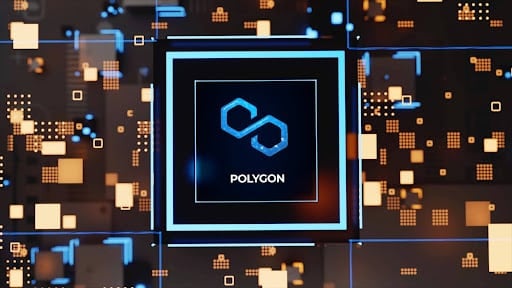
- Polygon’s EIP-4844 upgrade will slash transaction fees by up to 5x, benefiting users and boosting market confidence.
- Blobspace, a key feature of EIP-4844, will streamline data management, reducing reliance on costly storage methods.
Polygon, a leading player in the blockchain space, has announced the launch of EIP-4844, set to revolutionize transaction fees for its users. Blobspace is a revolutionary idea for database storage, designed to handle large binary objects (BLOBs) efficiently and plans to drastically reduce transaction costs, especially for rollups.
After the Dencun upgrade on March 14, 2024, Blobspace, a revolutionary idea for database storage, will become operational. This advancement will change the playing field for scalability solutions like Polygon, providing a more affordable substitute for conventional data storage techniques.
Next week is the mainnet rollout of the Dencun upgrade. Included with it is EIP-4844, which will lower transaction fees related to calldata on L2s.
On Polygon zkEVM, posting to calldata accounts for 80% of a tx fee. Current estimates are that blobs will reduce this by 2X – 5X.… pic.twitter.com/Y5iWE7QgYJ
— Polygon Foundation (@0xPolygonFdn) March 7, 2024
Implications for Polygon zkEVM
Blobs reduce the storage burden associated with calldata by keeping data for a limited time instead of indefinitely, lowering Ethereum transaction costs. According to preliminary estimations, EIP-4844 has the potential to reduce transaction fees by two to five times, which would be a noteworthy advancement for Ethereum.
For instance, a transaction fee of $1 could potentially be reduced to as low as $0.60–$0.36, providing tangible benefits to users across the platform. The significant cost associated with permanently storing transaction data on the Ethereum network is the focus of this solution.
This expense should significantly drop with the utilization of blobspace, providing users with a more affordable way to complete transactions. This update demonstrates Polygon’s dedication to improving cost and scalability for its expanding customer base.
Furthermore, the Feijoa upgrade for Polygon zkEVM, scheduled for release in May, will include support for EIP-4844. This update represents a turning point for the platform, offering consumers better affordability and scalability. Polygon zkEVM remains a top blockchain protocol by adopting innovative technologies like blobspace.
Optimizing Transaction Fees with Polygon CDK
Projects utilizing Polygon CDK in validium mode already benefit from lower transaction fees. Although the main focus of EIP-4844 is rollups, further integration with Polygon CDK could result in even more cost savings. Developers and users alike anticipate that third-party decentralized application (DA) solutions for validiums will offer even more competitive transaction fees, enhancing the platform’s appeal.
While rollups are the main benefit of EIP-4844, conversations in the Polygon community point to possible improvements to a zkEVM validium for Polygon PoS. Although transaction fees are now designed to maximize efficiency, the network’s dedication to ongoing innovation and scalability is highlighted by this suggestion. Detailed technical specifications for this upgrade are anticipated soon.
The implementation of EIP-4844 heralds a paradigm shift in transaction dynamics, particularly for chains leveraging Polygon’s scaling tools. While Type 1 zkEVM prover users stand to benefit, the impact on Polygon PoS remains limited. However, discussions within the Polygon community hint at a potential shift towards zkEVM validium, further aligning with Ethereum’s evolving ecosystem.
The announcement of EIP-4844 has already garnered positive attention within the cryptocurrency market, particularly for MATIC, the native token of the Polygon ecosystem. With MATIC experiencing a steady increase in value, reflecting gains of 1.16% in the last 24 hours, 14% in the last 7 days, and an impressive 38.88% in the last 30 days, investor confidence in Polygon’s prospects appears strong.




















